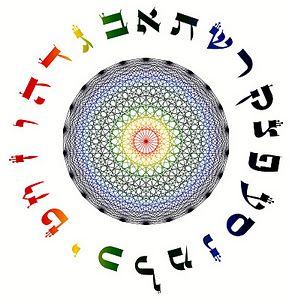Ariel Ben Avraham – Ecclesiastes: The illusion of vanity and the reality of love (XI)
“And I praise the dead who have already died, more than the living who are still alive. And better than both of them is he who has not yet been, who has not seen the evil work that is done under the sun.” (Ecclesiastes 4:231
These verses contain the strongest warning against the choice of ego’s fantasies and illusions, to the point that it is better not to be born than living in a world of vanity.
In this context, vanity is the evil itself as the vexation of life. The lesson in this warning is not to reject or avoid life in the material world “under the sun”, but to be aware that the only reason to live is to do it in the reality of love, not in the illusion of vanity.
“And I saw all the toil and all the excellence of work, which is a man’s envy of his friend; this too is vanity and frustration.” (4:4)
There are a few lessons in this verse.
First, we have to focus on our own thoughts, emotions and doings instead of focusing on other people’s lives.
Second, goodness is the excellence of our works, for which we must toil as part of our life in order to maintain and preserve the goodness in life.
Third, if our thoughts, emotions and feelings are focused on the wrong premises for the wrong purposes, we find ourselves toiling for vanity.
Fourth, as we covet and envy other people’s possessions and works, we are condemning ourselves to frustration and anger as the produce we harvest in life.
“Wrath is cruel, and anger is overwhelming; but who is able to stand before envy? Better is open rebuke than hidden love. Faithful are the wounds of a lover; but the kisses of an enemy are deceitful.” (Proverbs 27:4-6)
We are reminded that all we envy or covet turns into our frustration and anger, which end up filling the void created by our lack.
We must approach beliefs or feelings of lack as the negation of our own goodness that fills all we need or want. The goodness of love suffices all, for there is no lack in love.
Ariel Ben Avraham’s book on the Jewish conception of God’s love according to the Hebrew Scriptures and Jewish theology. How we relate to God’s love as our common bond with Him. You can order the book directly from the author at godaslove@gmail.com. From the book: “Let’s be aware that we are emanated from God’ love. Whatever we are and have come from Him and it is His, including the love that we are and give. Love is our essence and identity.”
 Kochav Yaakov, Shomron (Samaria), IsraelAriel Ben Avraham (f. Zapata) was born in Cartagena, Colombia in 1958. After studying Cultural Anthropology in Bogotá moved to Chicago in 1984 where he worked as a television writer, reporter and producer for 20 years. In the 1990’s he produced video documentaries related to art, music, history and culture such as “Latin American Trails: Guatemala” distributed by Facets.org. Most of his life he studied ancient spiritual traditions and mysticism of major religions, understanding the mystic experience as the individual means to connect with the Creator of all. Since 2004 he studies and writes about Jewish mysticism and spirituality mainly derived from the Chassidic tradition, and the practical philosophy of the teachings of Jewish mystic sages. The book “God’s Love” is the compilation of many years studying and learning Jewish mysticism. The messages of his book are part of the content, exercises and processes of a series of seminars, lectures and retreats that he facilitates in Israel.
Kochav Yaakov, Shomron (Samaria), IsraelAriel Ben Avraham (f. Zapata) was born in Cartagena, Colombia in 1958. After studying Cultural Anthropology in Bogotá moved to Chicago in 1984 where he worked as a television writer, reporter and producer for 20 years. In the 1990’s he produced video documentaries related to art, music, history and culture such as “Latin American Trails: Guatemala” distributed by Facets.org. Most of his life he studied ancient spiritual traditions and mysticism of major religions, understanding the mystic experience as the individual means to connect with the Creator of all. Since 2004 he studies and writes about Jewish mysticism and spirituality mainly derived from the Chassidic tradition, and the practical philosophy of the teachings of Jewish mystic sages. The book “God’s Love” is the compilation of many years studying and learning Jewish mysticism. The messages of his book are part of the content, exercises and processes of a series of seminars, lectures and retreats that he facilitates in Israel.










